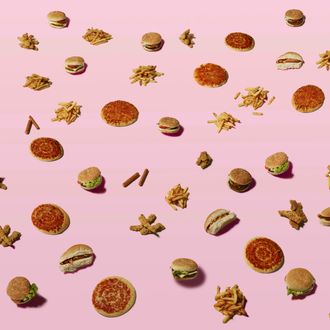
And now an experiment that takes your idle fantasy — lying in bed all day doing nothing but bingeing on junk food — to its logical conclusion. Six men volunteered for a one-week study in which they did just that, consuming 6,000 calories’ worth of pizza and burgers per day as they lay in bed, forbidden from moving or “doing any sort of exercise,” reports New Scientist.
On the one hand: Sign me up. On the other: The men gained an average of about seven and a half pounds, and after just two days of their new diet they developed insulin resistance, a condition that causes glucose to build up in the blood and can lead to diabetes. “By definition, they all developed diabetes,” Francis Stephens, of the University of Nottingham in the U.K., told New Scientist. (Stephens wasn’t involved with this particular experiment, but he does study metabolic disease.)
But the volunteers’ efforts were worthwhile, argue the Temple University researchers who led the study, because it gives a hint about what could possibly explain the link between overeating, insulin resistance, and diabetes. Rachael Rettner over at LiveScience explains this nicely:
Samples of the participants’ urine and fat tissue showed that there was an increase in oxidative stress in their bodies, which means there was an increase in compounds that are toxic to cells. This oxidative stress caused changes in a protein called GLUT4, which normally helps sugar get inside cells.
The GLUT4 changes may have impaired the ability of this protein to respond to the hormone insulin, thus leading to insulin resistance, the researchers said.
Hurrah for obesity research, but it’s going to cost our fearless volunteers, who will likely need months to shed the pounds they gained over the course of this study. At least they’ll always have the memories of their one-week stay at reverse fat camp.




